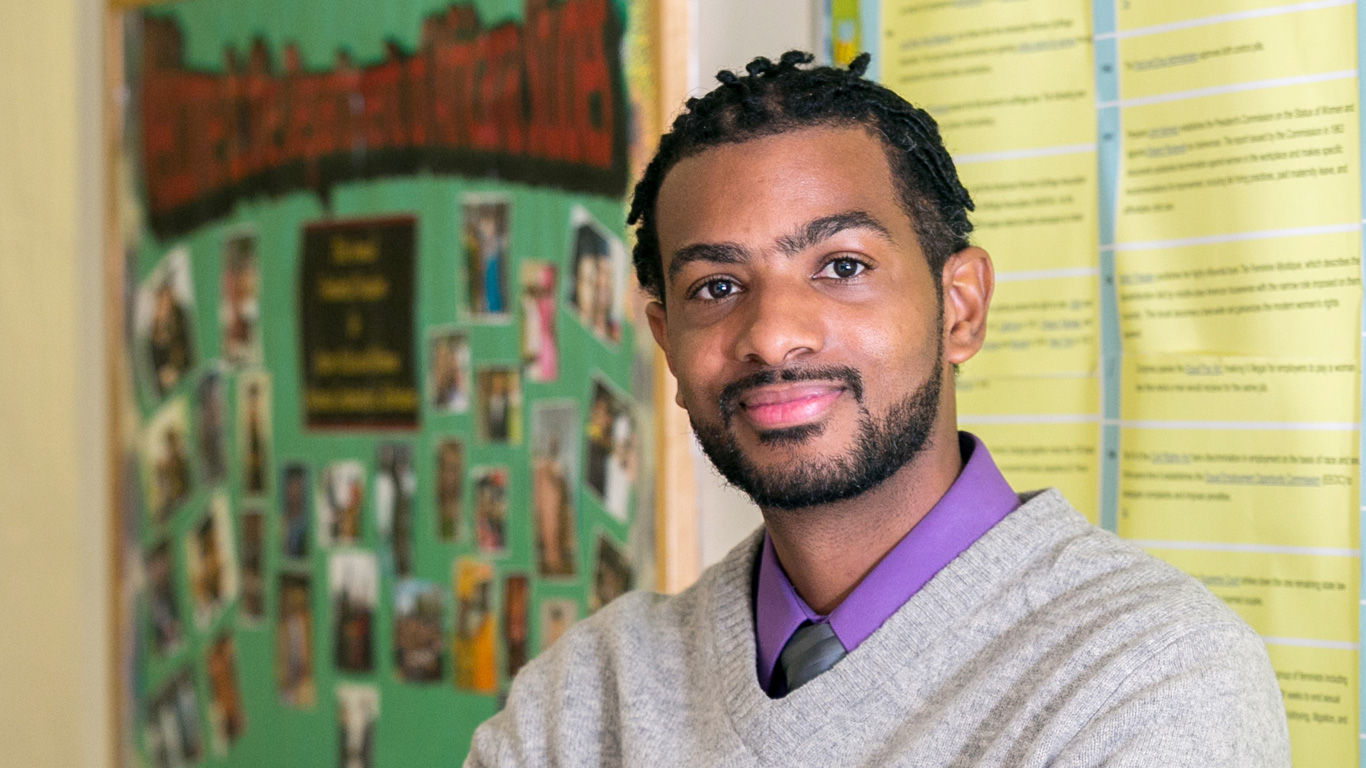 What happens after a community rises up in protest and demands an end to inequality, brutality, racism and economic injustice? Justin Gammage, CSU Dominguez Hills assistant professor of Africana studies, examines whether or not civil rights movements – both past and present – have effected change.
What happens after a community rises up in protest and demands an end to inequality, brutality, racism and economic injustice? Justin Gammage, CSU Dominguez Hills assistant professor of Africana studies, examines whether or not civil rights movements – both past and present – have effected change.
For the last couple of years, an angry chorus of protest has risen in response to a string of police shootings that have resulted in the deaths of unarmed African Americans across the United States. The Black Lives Matter movement, along with other activist groups, have newly elevated an old, persistent issue into the national dialogue.
“In the last three years, there have been the largest gatherings of people since the civil rights era – and not just African Americans – who have had issues with the use of excessive force by law enforcement,” said Justin Gammage, assistant professor of Africana studies. “I think it has heightened peoples’ consciousness. It has encouraged youth to advocate for themselves, to voice their concerns, and it has provided a venue for them to engage in a public discourse.
“But in terms of practical and structural changes in policy, I’m not sure it’s found its way there yet. Some states have made changes regarding law enforcement procedures – and the Confederate flag came down in South Carolina – but we will have to see if there will be structural change on the horizon.”
Gammage’s research examines historical African-American social movements to see if they have resulted in improved economic security for local communities.
“During the civil rights and black power movements decades ago, a number of demonstrations were centered on providing equal opportunity in employment. In other sectors, it was equal access to home ownership, access to schools, ending discrimination in awarding government contracts, and membership in trade unions,” added Gammage. “All of this was a quest for economic resources, which should lead to financial stability for communities and, more particularly, families.”
The results of these movements have been mixed, Gammage said, noting that President Lyndon Johnson’s war on poverty and initiatives he enacted in the 1960s to engage and address issues of poverty ultimately weren’t sustainable.
“Three-quarters of the current African-American community is largely impoverished, and that’s consistent with prior generations,” he said.
However, some areas of inequality have seen degrees of improvement.
“There have been huge strides in the sphere of voting, and African Americans as well as other groups have had more access to higher education within the last decade,” said Gammage. “African Americans and other ethnic groups also are more present in entertainment. So gains have been made, but it hasn’t translated to better economic conditions for the collective community.”
Our position is to provide the necessary research to produce viable solutions for transforming the conditions we face. – Justin Gammage
Gammage is working to find solutions for this gap in opportunity. He is part of San Francisco-based Afrometrics, a think tank focused on solution-based suggestions and analysis addressing African Americans’ concerns.
“Our position is to provide the necessary research to produce viable solutions for transforming the conditions we face,” he said.
Afrometrics serves as a forum where scholars and activists can research challenges within the Africana community and provide data-driven solutions. Like the discipline of Africana studies, the coalition encourages discussions about cultural differences that lead to consciousness raising. Gammage has also played an active role in hosting teach-ins so that people are informed of the laws and their rights with the hope of diffusing tensions when engaging law enforcement.
“Ultimately, it comes down to exchanging information between the two entities,” said Gammage. “We approach our research and activities in a way that produces truthful information so that everyone is operating with fact versus opinion.”
Nationally, the ultimate results of the most recent public demonstrations are yet to be seen, said Gammage, but they have spawned an ongoing and spirited national conversation.
“Movements like Black Lives Matter have had impact, because police brutality, racism and inequality have become societal questions. They’re not just discussions in the small spaces where people feel like they’ve been mistreated. It’s on CNN and on social media. This discourse is happening right now all over the country.”
Written by Laurie McLaughlin. This story first appeared in the Fall 2015 issue of the university magazine, Dominguez Today.